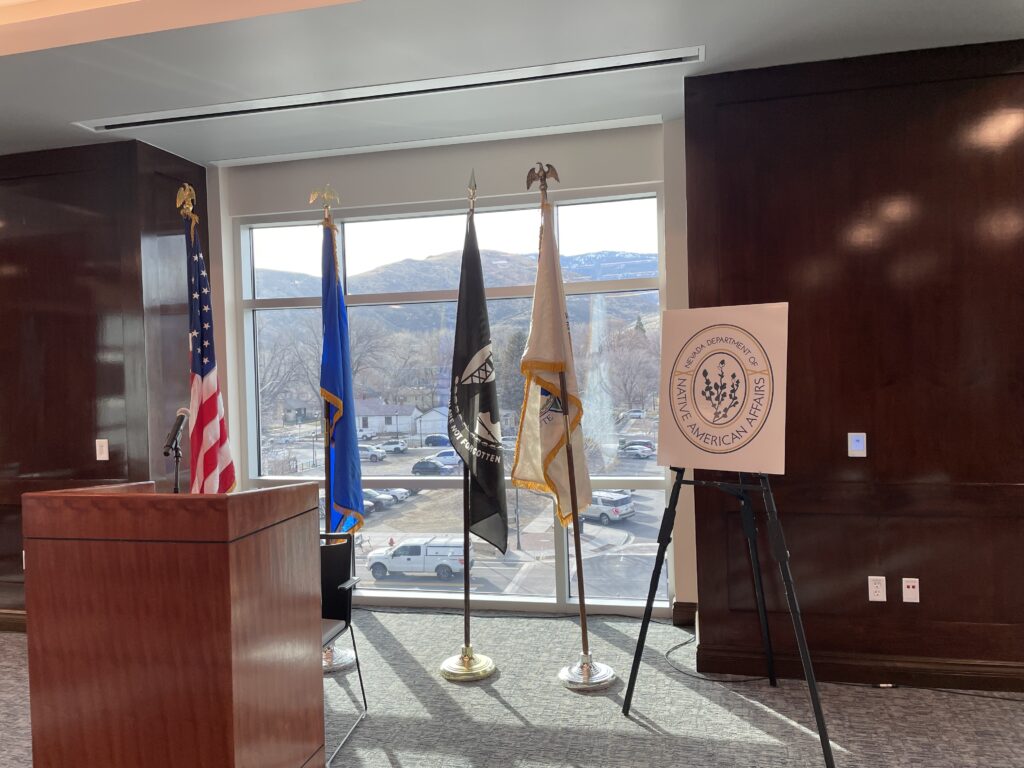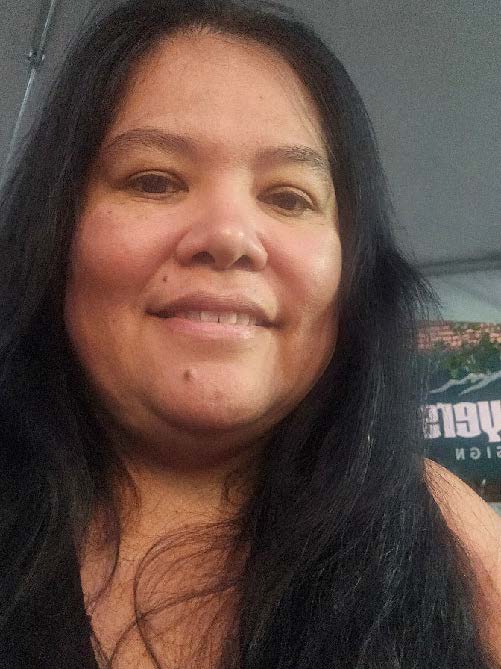Washoe Women Assumes Role as Tribal Health Program Specialist

For Immediate Release
April 1,2025
Contact: [email protected]
Washoe Woman, State Employee Joins Nevada Department of Native American Affairs
Carson City, Nev. – Lawanda Jones, a citizen of the Washoe Tribe of Nevada and California, who has worked for the State of Nevada for 14 years, has transferred to the Nevada Department of Native American Affairs (DNAA) as a Tribal health program specialist. Jones’ role, created through the Fund for a Resilient Nevada (FRN), focuses on the opioid epidemic in Indian Country.
“There is so much work to be done to stop the horrible plague addiction, specifically opioids, has brought to our Tribal communities and people,” Jones said. “By listening to our elected leaders, elders, health professionals, and youth, I will be establishing relationships and expanding bridges between the State, Tribes, and other stakeholders.”
Jones’ previous work experience includes time with the Nevada Department of Health and Human Services (DHHS) specializing in Maternal, Child, and Adolescent Health, Drug Endangered Children, and with the Substance Abuse Treatment Agency.
“Lawanda will represent our department with integrity and transparency,” said Stacey Montooth, executive director of the DNAA. “As a Native American woman, a public servant, coupled with Lawanda’s insight from working for Tribal governments in Nevada, California and Oregon, she has outstanding qualifications and proven skills to take on this challenging, brand-new job.”
Jones grew up and resided in the Hung-a-lel-ti Community in Woodfords, Calif. Jones earned multiple degrees including a bachelor’s degree in sociology from Willamette University in Salem, Oregon. She graduated from Douglas High.
The Fund for a Resilient Nevada was established in Nevada Revised Statutes (NRS) 433.712 and is specific to the state’s portion of opioid litigation recoveries. It is administered by the DHHS, though Jones will work from the former Stewart Indian Boarding School, from which the DNAA operates.
According to the Nevada Opioid Center of Excellence, a part of the School of Public Health at the University of Nevada, Reno, Native American communities in Nevada have experienced significant opioid-related harms, including increased overdose rates and limited access to treatment services. Factors such as historical trauma, socioeconomic disparities, and geographic isolation exacerbate these challenges, making tailored approaches essential for effective intervention.
Beginning in 2021, DHHS developed a statewide needs assessment and a statewide plan which identifies seven priorities related to addressing opioid-related risk, harms and impacts using a data-driven and evidence-based approach and solicited innovative applications for the FRN programs.
The state plan prioritizes overdose prevention strategies, youth substance use prevention and focuses on health equity and identifying disparities across geographic regions and special populations.
American Indians and Alaska Natives had the second-highest rate of opioid overdose out of all U.S. racial and ethnic groups in 2017, and the second and third highest overdose death rates from heroin and synthetic opioids, respectively, according to the Centers for Disease Control and Prevention (CDC).
A stand-alone agency since July of 2024, the Nevada Department of Native American Affairs is a state agency charged with improving the quality of life for the 28 Tribal governments, Colonies, and Bands, plus 62,000 urban Indians within the State of Nevada. The DNAA works to develop and improve cooperation and communications between Tribal Nations, state and local governments, and related municipalities with the purpose of improving education, employment, health, well-being and socio-economic status of Nevada’s Native American citizens as well as enhancing Tribal sovereignty, economic opportunities, and community development. The Stewart Indian School Cultural Center & Museum which uses a multi-media approach to preserve the history of Indian Boarding Schools in America, provides a platform for the DNAA for outreach and education about the first people of this land.

